Fairview Farm: A Glimpse Into My Family History
Sand Hill, Ohio County, West Virginia

My fondest childhood memory is of visiting my great-grandmother on her farm in Sand Hill, in the district of Triadelphia, West Virginia. My mom, brother, and I would pile into my aunt’s van with three of our cousins and buckled down for the two-hour drive. We often stopped for lunch at Shoney’s before continuing on to the beautiful city of Wheeling. We loved experiencing the sudden cloak of darkness and gradual expanding pinhole of light through Wheeling Tunnel. Having opened in 1966, the .27 mile long twin tunnels run along routes I-70/US 250 and brings drivers beneath the mountain known as Wheeling Hill.
After driving through Wheeling, the car would turn onto Stone Church Rd., a road that makes a vertical climb up Sand Hill. On our right, we passed Stone Church Cemetery, where our earliest ancestors to the area, Daniel and Mary Blake Winters, are buried. From there, we made our way up, up, up the side of the mountain. The road was narrow and winding with steep drop offs. Houses sat at angles with impossibly steep driveways. As the road dipped and swelled again and again, us children had a grand time “wheeing” and “whoahing” along.
Eventually, we turned into a gravel driveway, passing a small dilapidated house. The boards of the front porch were so buckled and misshapen with time that they resembled the trestles of a wooden rollercoaster. The interior floors gaped with holes, the contents spilling into the basement. At one time, the structure had been used as a schoolhouse before my great-grandmother, Alta Winters McNinch, came to live there with her husband Howard. They raised their five children there, one being my maternal grandmother, Virginia. Alta and her siblings had been raised a quarter mile down the drive at the big, white farmhouse, where the old school bell sits in the front yard to this day.
The old schoolhouse, farmhouse, and barns sat on acres of rolling pastures and forests known as Fairview Farm since the day my great-great grandfather Albert Winters purchased the property sometime in the late 1800’s. Albert’s daughter Alta lived in the farmhouse on her own, though had plenty of family living nearby as neighbors. The farmhouse sat in a grove of trees, some growing peaches in the front that were the juiciest, luscious peaches one could ever eat. A vegetable garden grew in the yard near the fence where the horses grazed the pasture. My mom’s cousin Neil took me and my brother riding on these horses. We explored the barns, observing the wallowing pigs and strutting chickens. We took our greatest pleasures in climbing the hay bales in the pasture and would spend hours leaping from one to the next. We would play hide and seek among the outbuildings. One time my cousin Shay, who lived nearby, found the ultimate hiding spot. We climbed inside the empty silo and remained there for an eternity before we realized the others had given up on finding us. One of my earliest memories of the farm is sitting on my Aunt Penny’s shoulders as she walked across the pasture at dusk and she stopped so we could watch a groundhog. In the cow pasture at the right of the farmhouse, sat an old round cement watering trough with the family’s names carved in it decades before. Down by the woods, we fished in the pond and spent countless hours in the calming bliss of the true countryside. It was truly Heaven on earth.
Inside the farmhouse, brown wallpaper peeled from the wall and the rooms smelled of a mixture of must and sulphur. It certainly did not matter to me that the house both looked and smelled old, because it added to the appeal. The front door opened to the living room, with a set of stairs to the second story bedrooms on the back right. My great-grandmother’s bedroom was through the wall on the left of the living room, the kitchen sat at the back, and the newest addition, the bathroom was to the right of the kitchen. On the immediate left of the door, sat the home’s original fireplace. It was quite an unassuming fireplace and one would find it hard to believe that it was once the site of a terrible misfortune. The old brick and mortar held the memory of the family’s greatest tragedy, a story that has echoed through each generation. My mom did not tell me the story until I was a teenager, that the fireplace led to the death of my great-grandmother’s brother.
Family History
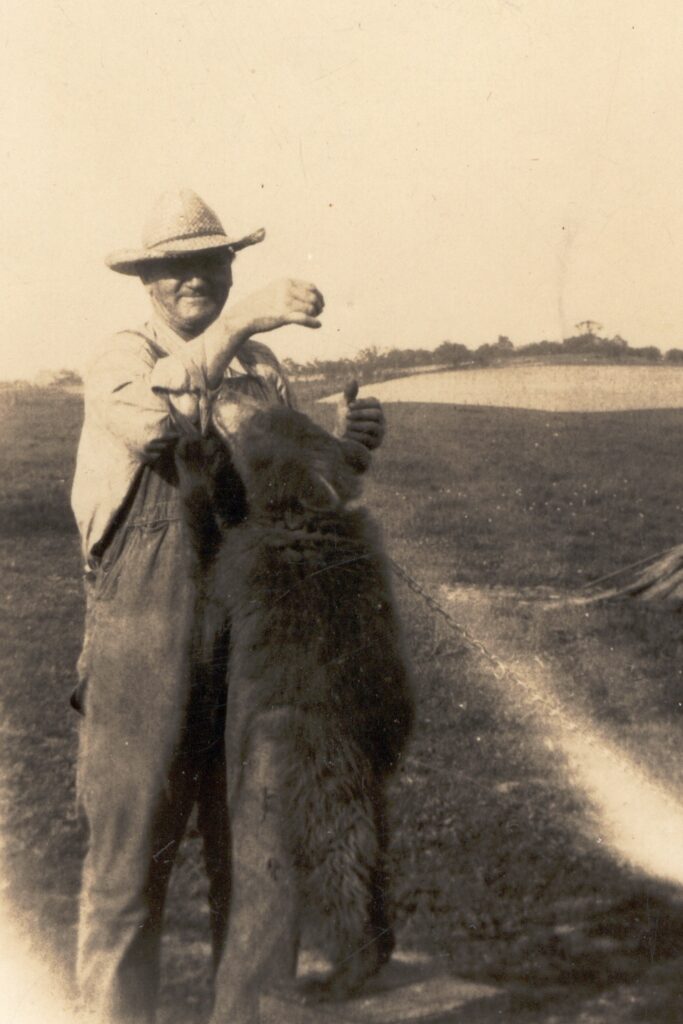
My great-great-grandfather, Albert Winters, was a farmer, a timberman, a great hunter, and loved all animals both wild and domesticated. He was even photographed playing with a baby bear on the farm. His great-grandfather, Daniel Winters, had sailed from Ireland and settled at Sand Hill. His grandfather, John Winters, was known for his strength and power. A key moment in John’s life was when he accidentally broke a blood vessel in his leg while cutting wheat. A young woman, Eliza Davis, ran to help him and bound his leg. They fell in love and married. Their son and Albert’s father, Isaac Davis Winters, was one of three brothers who fought in the Civil War. Isaac earned the title of the Lieutenant before the end of the war and was present with General Grant at Appomattox Courthouse.
Albert’s brother Richard was the father of Hollywood starlet Charlotte Wynters. His sister Annabelle was a WWI nurse. His other sisters, June and Mary “Minnie”, opened an acting school in Columbus, Ohio known as The Wynters’ School of Expression. June was quite theatrical herself, acting in numerous onstage performances.
Albert falsely accused another brother, John Edward, of stealing farm equipment and John left West Virginia. For a while he sent correspondences to his family, notifying them that he worked transporting logs along the river in Oregon and Idaho. His family became quite alarmed when correspondences from him ceased after 1900 and assumed that he was either killed or drowned on the job. Attempts by the family to locate him proved unsuccessful. However, just a few years ago, Find A Grave volunteer Bob Toelle located his burial place in Princeton, Canada, finally solving a century-long family mystery. Records show that John had made his way north to Canada and died a widower at the age of 64. It seems he had never received exoneration from his family and simply left them behind in his past.
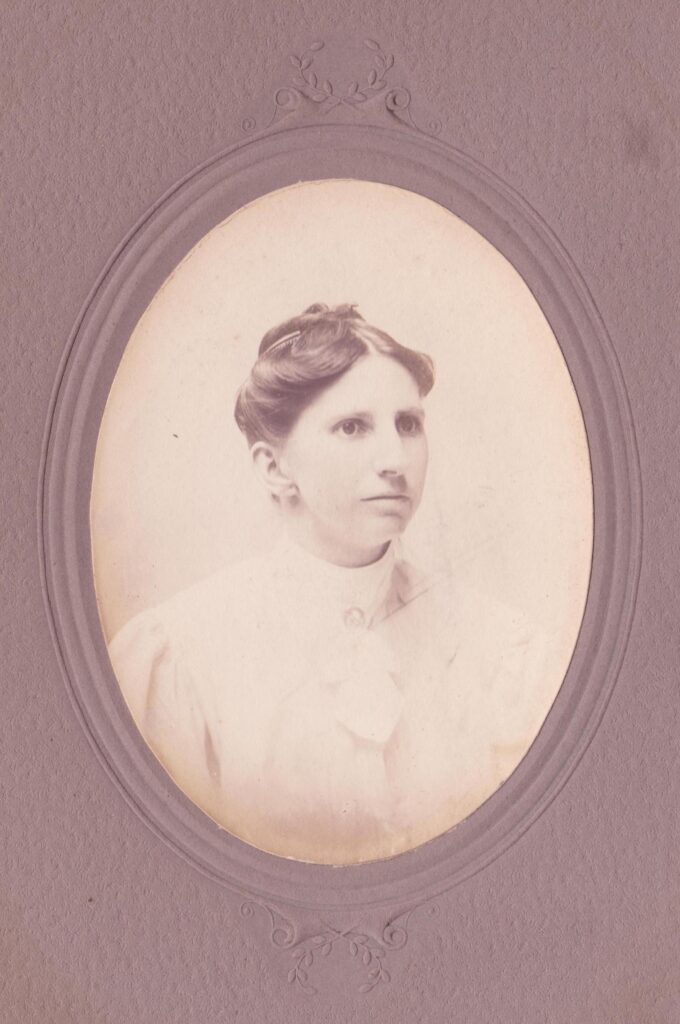
Albert married Carrie Minnix Marsh on April 15, 1894 in Sand Hill. They were the first couple to be married at Sand Hill Methodist Church. Carrie was the daughter of Johnathan and Catherine (Abercrombie) Minnix. Catherine died before Carrie was a year old and Johnathan left Carrie behind to be raised by friends, taking his eldest daughter Sarah Lucille to Kansas. Carrie was adopted by Charles Wesley and Isabelle (Lewis) Marsh.
The couple opened their own store in Wheeling before purchasing Fairview Farm. The original house had only two rooms, the rooms we knew as the living room and my great-grandmother’s bedroom to the left, with a single fireplace through the partition. Albert added on all the other rooms, except for the bathroom which was not added on until April of 1962, along with a new green roof. Before then, the farm only had an outhouse.
Albert and Carrie lived their entire lives in Sand Hill District, having seven children over a span of twenty-one years: Charles Merton “Mert”, born in 1895, Herbert Leslie “Herb” born in 1899, Orville Melvin born in 1903, Lulu Virginia Belle, born in 1906, Nellie June, born in 1908, Alta Marie, born in 1912, and Mary Roberta, born in 1917.
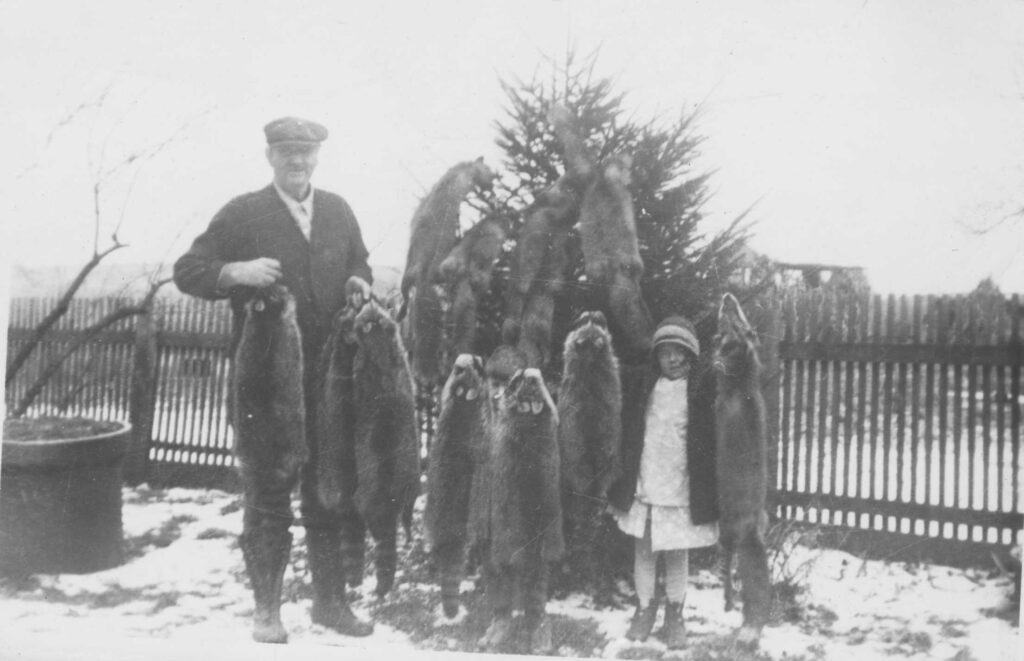
Tragedy Strikes
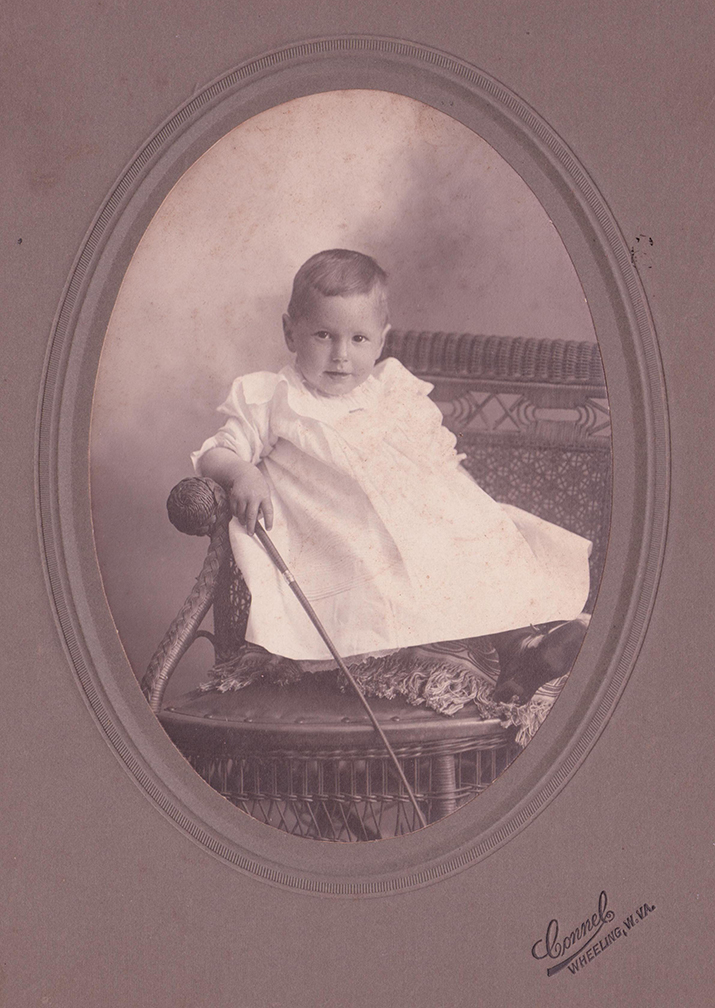
Orville Melvin, the third son of Albert and Carrie was three years old when he died on April 10, 1907.
Orville had reached up to the hearth for a pair of scissors when his long nightgown caught on fire. Terrified, he began to run, but this caused the flames to build even more. His family pulled him outside where they stifled the flames with blankets. Despite their efforts, Orville suffered from severe burns and succumbed that same day.
He was buried next to his grandfather Isaac and grandmother Hannah on the grassy knoll looking over Cameron, in the graveyard of Sand Hill Methodist Church.
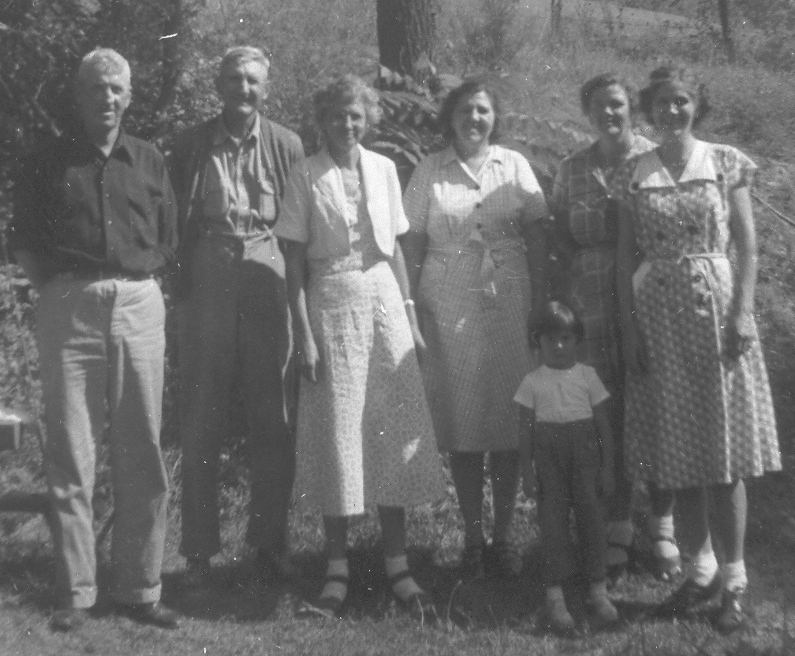
Six Remaining Children
Both Albert and Carrie passed away at the farmhouse, Carrie on December 22, 1939, from chronic myocardia and Albert on February 12, 1945.
Their eldest son, Mert, had been eleven when Orville died and remembered the death of his little brother, a subject the family chose not to speak of. He married Vivian Fitzsimmons with whom he had six children. He worked all his life as a farmer. He and his wife had their fair share of trauma and seemingly suffered their ailments in tandem. In 1957, Vivian fell and broke her ankle. A couple days later, Mert’s leg was caught between the tractor and trailer and gashed so badly to require stitches. On December 4, 1958, he came home from a hunting trip in the mountains and went to work in his barn where he suffered a coronary occlusion. This had not been his first attack. The following day, he was at the doctor for an echocardiogram when Vivian went out to fetch the mail, slipped on the steps, and fractured her femur. An ambulance had to fetch her to the hospital. The family worried more for Mert’s heart than Vivian’s broken bone, but he was back deer hunting three days later. While Vivian remained in the hospital after an operation on her leg, Mert had a second echocardiogram. His doctor advised Mert’s sister Lulu to not leave him alone due to the poor condition of his heart. In January and April, he suffered more coronary occlusions and was hospitalized. His doctor bemoaned his lack of proper exercise and poor diet. On May 2, 1959, he fell over in the dinette of his home on Dallas Pike and died instantly of a heart attack. He was only 63.
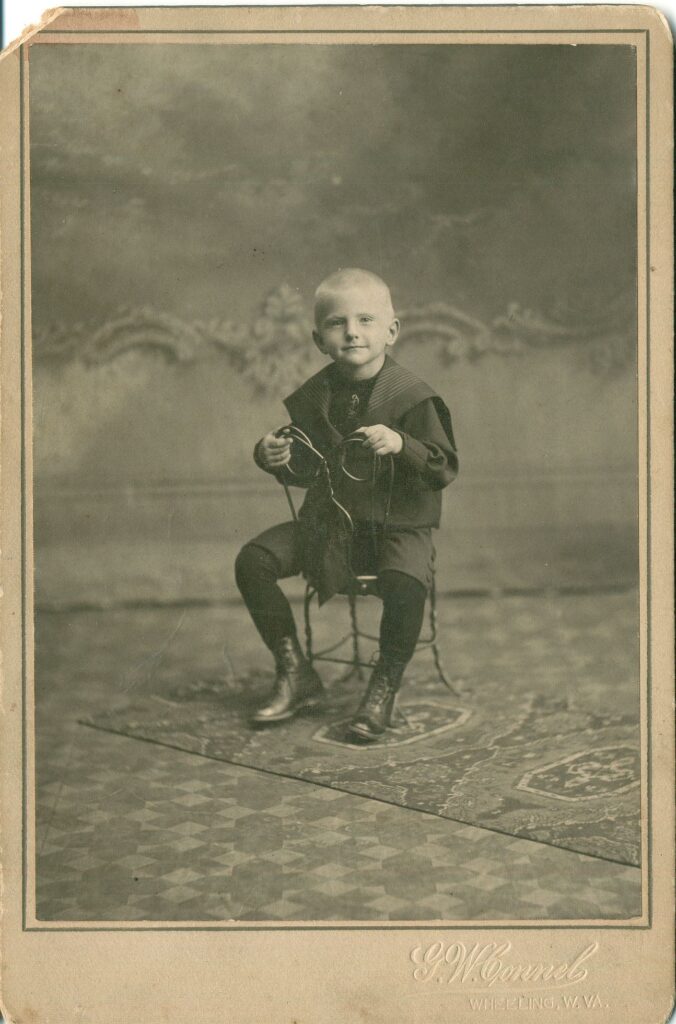
The second born, Herbert Leslie, known as Herb, had been seven when his brother Orville died. He live all his life at the farmhouse, remaining a bachelor all his days. He and his younger sister Lulu watch their surviving siblings marry and move out of the farmhouse, while they stayed behind, attending to their aging parents. Herb’s passions were farming, hunting, and welcoming visits by his nieces and nephews, and later on his great nieces and nephews, who considered him their favorite uncle. He often went to the mountains with his brothers and nephews to hunt, even receiving notoriety in the local papers for shooting a bear. The last few years of his life were quite difficult, but he never stopped working hard. In May of 1961, Herb was working on his sister Mary’s barn, when the scaffold pulled loose. He fell twelve feet, landing on his back against the fence. He visited the doctor the next day for X-Rays and not only did the doctor see that Herb had cracked a rib in his fall, but he also had an enlarged heart. A little more than a week later, he was stung by a swarm of honey bees and later went unconscious at the dinner table. Lulu called the ambulance and it took him to Ohio Valley General Hospital where he recovered. He was unconscious for a half hour. Later that year, the ex-son-in-law of a tenant renting property down the road set the crow barn on fire out of spite. He had become drunk and had a cab drop him off at the property at two in the morning when he started the fire. It went up into flames in short time. Herb had six or seven-hundred bales of hay and his line drill stored there. The morning after Christmas, Herb passed out and fell over the front porch rail into the yard. When he came to at 7:30, he managed to make his way back in the house. His nephew Dale drove him, Lulu, and Alta to Ohio Valley General Hospital while his other nephew Tim did the day’s chores. Herb had a cardiogram and his blood test showed he had a stroke the week before. Lulu had noticed he had a spell and wasn’t able to talk. He had another cardiogram two days later because he suffered pain in his left chest and back. The doctor said Herb had a hardening of brain arteries. On Sunday February 16th, 1964, his sister Lulu watched him come inside after his morning barn chores at approximately 8:20 a.m. He sat down to breakfast, picked up his coffee, took a breath or so and died. She immediately called out to her brother-in-law Howard who was outside feeding cows. She had noticed that Herb had been failing fast for a month. His funeral was held that Wednesday at Kepner’s funeral home at 1:30, led by Rev. McIntire. Over 520 people came to pay their respects. I have a little wooden chest that once belonged to my Uncle Herbert along with his wallet, which are among my most prized possessions.
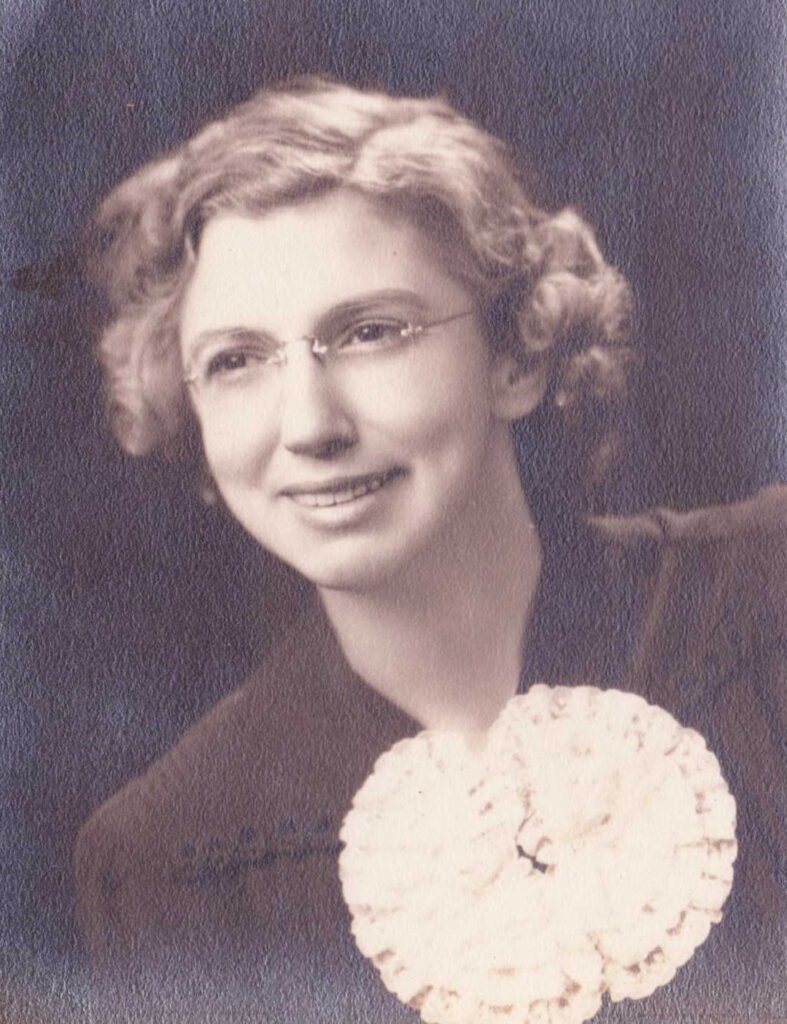
Lulu Virginia Belle was only thirteen days shy of her first birthday when her older brother Orville died. Like Herb, she never left the family farm. She went on to become the family historian, correspondent for the Wheeling Daily Intelligencer, and town gossip. She was a tall and thin woman, measuring 5’9″ tall and weighing 128 pounds at her heaviest. She usually bleached her brunette hair blonde, wearing it in the curled style of the time. She was very quirky with a wonderful personality and unique sense of humor. Lulu had become engaged to a man who went off to serve during WWII and broke off the engagement by letter. She never again entertained prospects of romance, content to join her brother Herb in his bachelor life. The two adored having their nieces and nephews visit. My mom recalls her and her three siblings crowding together with “Aunt Lu” in her bed and listen to her stories and jokes as they fell asleep. They thought she was hilarious. Lulu was heavily involved with the local social functions and the farm usually supplied the chicken for the church dinners. Alta walked down the lane every week so the sisters could do the washing together. They would make apple butter in huge vats in the front yard. All the sisters were excellent cooks and astute with gardening, canning, and raising chickens. Lulu was a hypochondriac and visited the doctor at least once a week with some ailment or other, be it rheumatism or digestive issues. Later in life, she suffered from “nerves” and as a result, sometimes avoided social functions, especially when her health was down. She took so many pills during the day, she had to keep track of the amounts in her diary, however they were known as “red pills”, “blue pills”, “grey pills”, or “kidney pills”. I suspect the doctor was giving her sugar pills, yet I say this tongue-in-cheek. Lulu died in 1977 at the age of 71 years. I wish I would have known her, for she seems like a colorful character and I enjoy hearing the stories my aunts and uncles tell of her.
Nellie June, was born two years after the accident that took Orville’s life. She married Jack Stoops on Feb 4, 1928. They had two daughters ten years apart, June Anne and Marcella Jane. I do not know much about Nellie, but that she loved her family, worked hard, and always offered a helping hand. When her sister Lulu was too ill to get out of bed, Nellie would come to the farmhouse and do the housekeeping and laundry. She often hosted her family for supper at her home and showed them a lovely time. The same day that her brother Herb was taken by ambulance for a bad reaction to bee stings, she was at the doctor for her wrist she had broken the day before. It seems no hazard left the family alone with their busy lives on the farm. She regularly attended classes at the Red Cross, so possibly had interest in nursing or at the very least, first aid. Like Lulu, she was also very active in her community and church. Nellie died in Wheeling in 1971 at the age of 63.
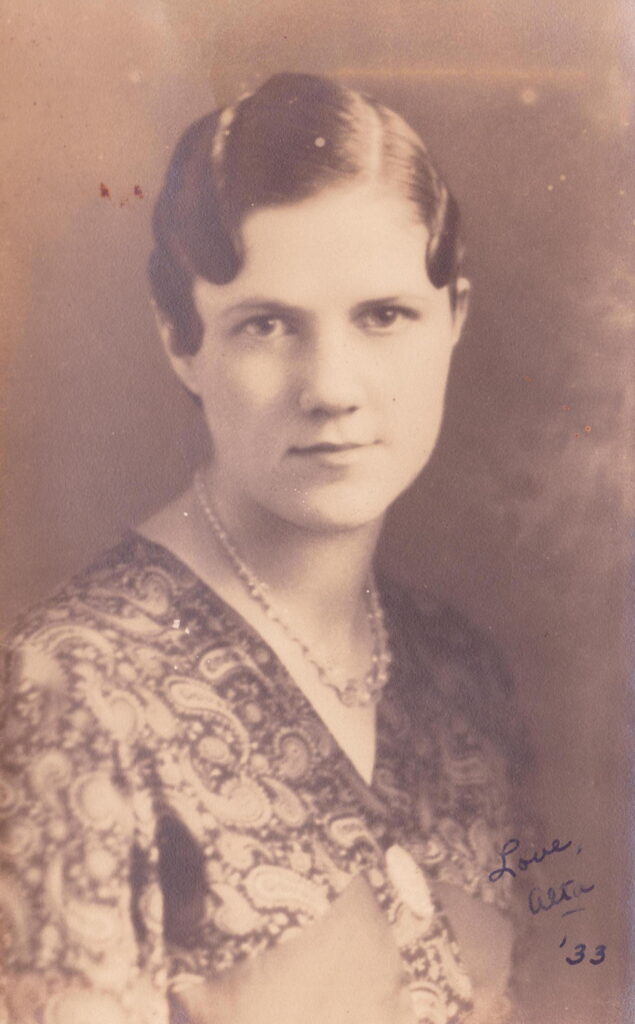
Alta Marie was my great-grandmother and my memories of her are very clear. She had a gruff manner and could be stubborn, but cared fiercely for her family. In her youth, she was quite pretty like her sisters. She eloped with Howard McNinch when she was 21 years old and had a daughter, Virginia Marie— my maternal grandmother— and four sons, Neil, Dale, Robert Leslie, and Tim. She raised her children in the old school building at the beginning of the lane next to Stone Church Road. Her four boys helped their Uncle Herb with the farm work and enjoyed hunting with him too. Like her mother before her, Alta was the church organist, a talent which passed to Virginia who went on to become the church pianist and secretary at our church in Cortland, Ohio. Alta lost her son Neil to pneumonia when he was just 15, another family tragedy. Virginia came down with polio around the same time and was treated in an iron lung. In Alta’s middle age, she became a teacher. She was the only college graduate among her siblings, graduating from West Liberty State Teachers College. She taught for 20 years at the former S-Bridge Elementary School in Wheeling and served as a substitute at Triadelphia before her retirement. She died just before my 10th birthday and I remember my cousins and I hanging out in the sitting room at Kepner’s Funeral Home, eating sugar cubes. In our boredom, we thought it would be fun to go exploring and behind one door we opened, was the dead body of another elderly lady awaiting her funeral. It both frightened and intrigued us, but taught us not to go poking around in a funeral home. The funeral dinner was held at Sand Hill Methodist Church and Alta was buried in the churchyard amongst her family.
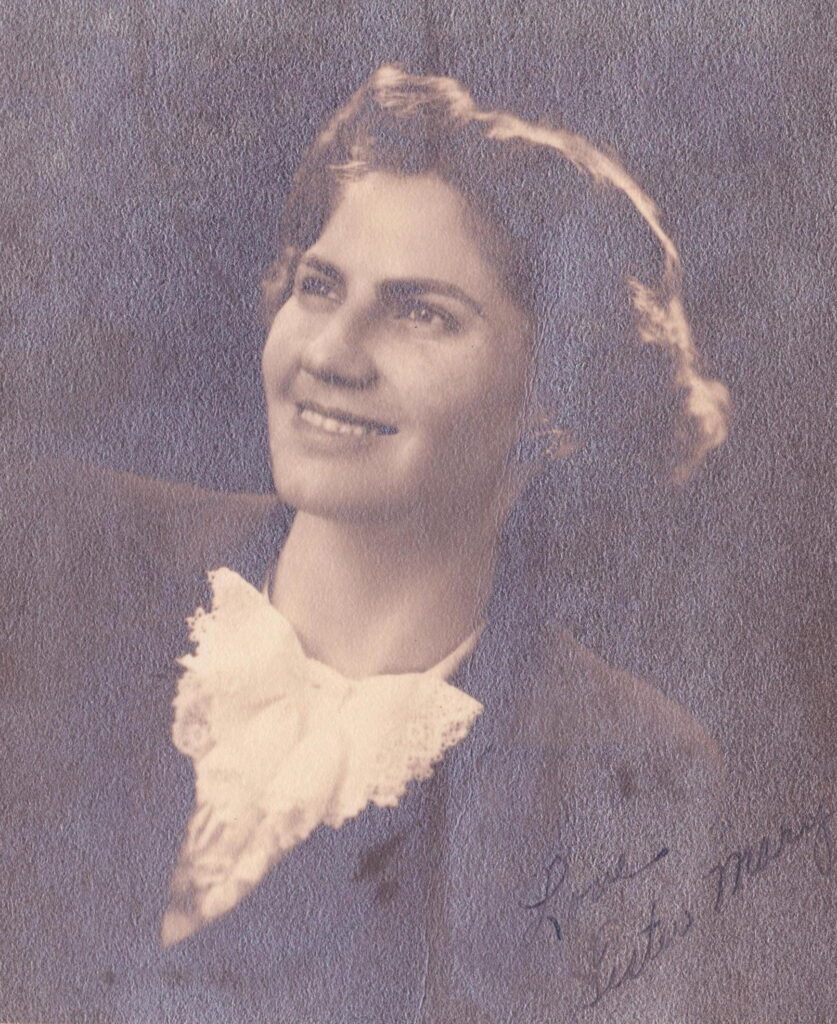
Mary Roberta was the youngest of Albert and Carrie’s children, born in 1917. She married Edward Glauser when she was thirty and they had three children, Margaret, Mary Jane, and Robert. Tragically, only ten days after their 8th wedding anniversary, Ed died of a heart attack. I remember my Aunt Mary fairly well. Her house sat just down and across the street from the lane to the farmhouse. In her later years, she developed throat cancer and had a total laryngectomy that removed her vocal cords and voice box. She was left with a hole, a stoma, in the center of her throat. She breathed through this hole and used an electronic device that spoke for her in a robotic voice. I used to be so scared seeing her because all I could see was a gaping red hole and I felt so much empathy for her. She was clearly delighted to see her grand-nieces and nephews, but I wonder how much our reaction to her condition bothered her. She died in 1992 and hers was one of the first funerals I remember attending.
End of An Era
We visited the farm at least once a summer, but often drove out to West Virginia to visit with my mom’s side of the family. Yet as I grew up, changes came to the family and farm. My great-grandmother’s health worsened. She was placed in a nursing home where she lost both of her legs, one by one, to gangrene. Instead of visiting the farm, the place I felt the happiest than anywhere else in the world, we visited my great-grandmother at the nursing home. After her death in 1995, her sons gained ownership of the farm and have since used the house as a hunting lodge. They covered the white exterior of the house with wooden logs so that it resembled a cabin. A transient set fire to the old schoolhouse at the head of the lane and it burned to the ground. We had family reunions at the farm but that was so long ago and we have not visited in a couple decades. Now I mourn what once was. I miss the happy memories playing with cousins amongst the hay stacks and visiting family who are all gone. It is truly sad when tradition dies with family and the happy times end. Memories fade with the years, growing distant and blurred. The way of life of surviving on a farm, visiting family members almost daily, and joining neighbors at their supper tables has become a thing of the past.
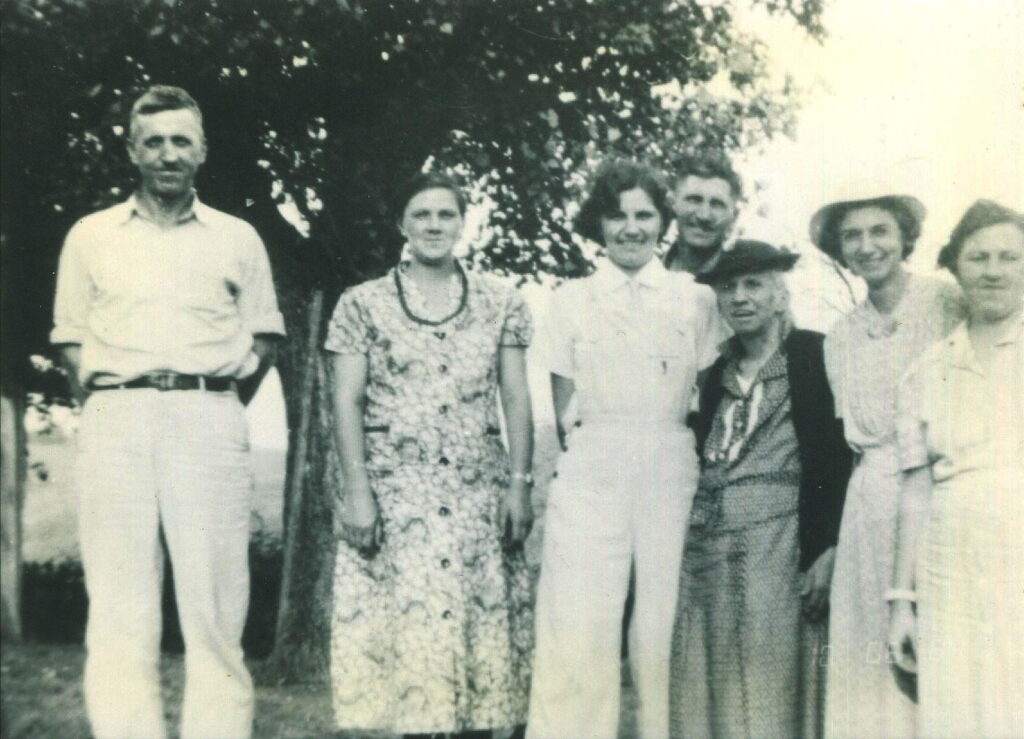
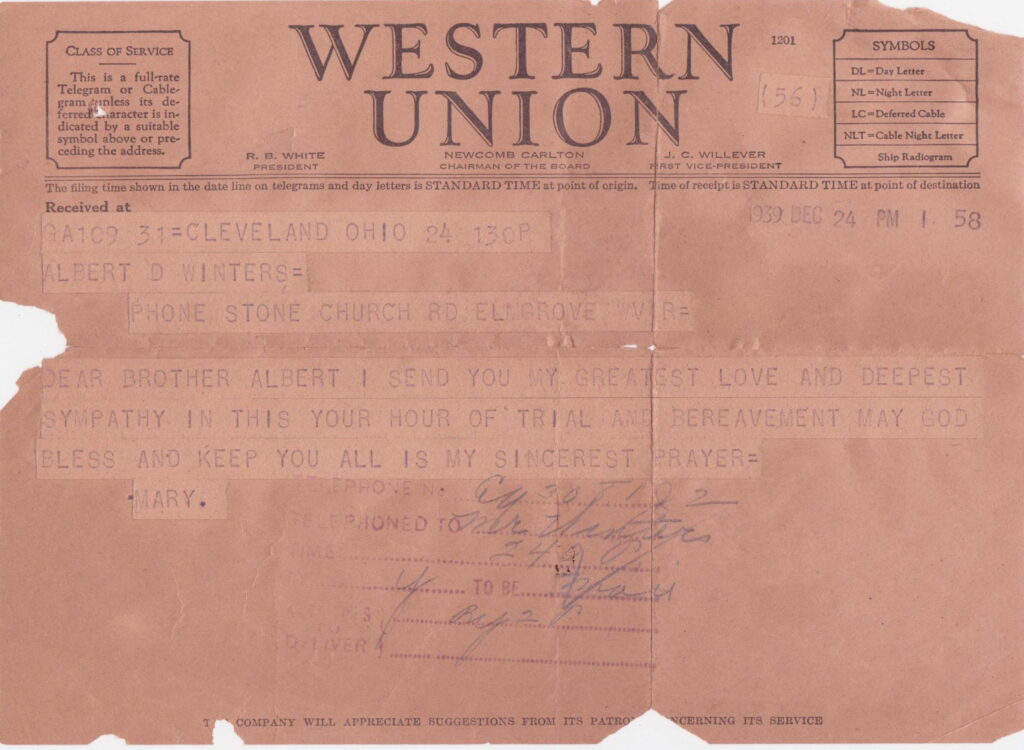
offering condolences for the death of Carrie, 1939